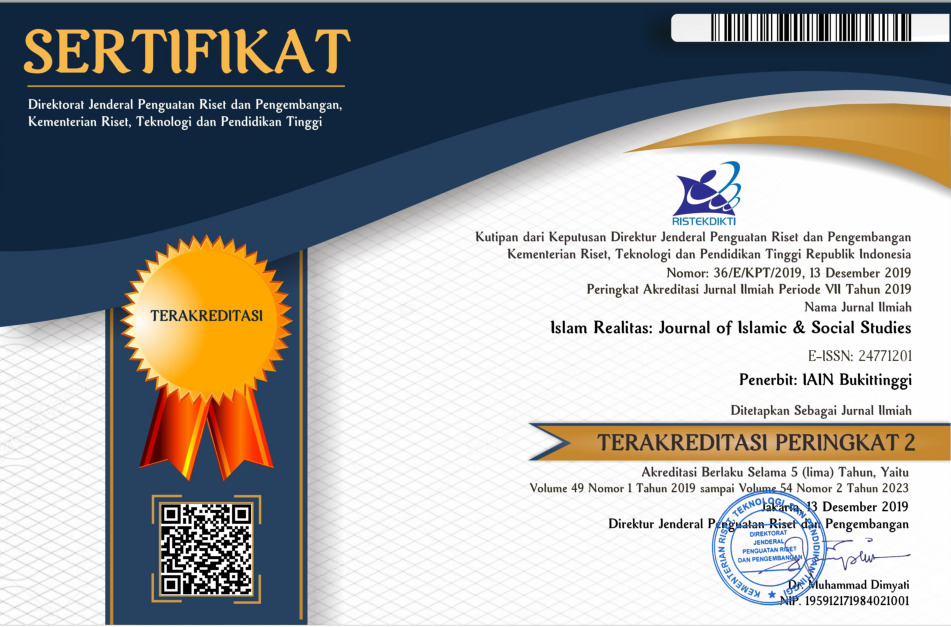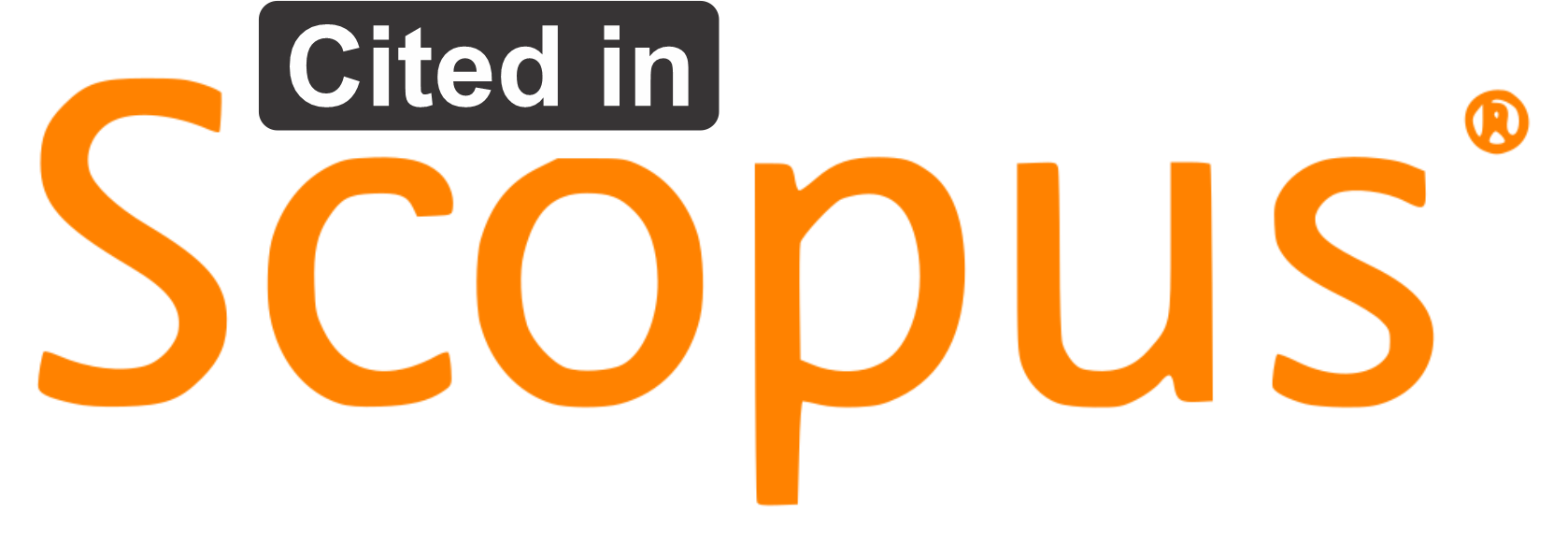Zakat and Social Welfare: Reviewing Zakat Management in Baitul Mal Aceh through a Good Governance Perspective
Downloads
Zakat has the excellent potential to overcome social welfare problems. Baitul Mal Aceh (BMA) is a body that can maximize the benefits of zakat funds for the welfare of the poor in Aceh province; therefore, it is necessary to strive for better management of zakat to obtain better results. This study aims to determine the management of zakat in BMA in terms of a good governance approach. The method used in this study is a qualitative descriptive method with data obtained through interviews, observation, and document study. The research results show that the zakat management in Aceh is quite good. Management should be based on the principles of good governance, such as openness and transparency; societal participation; accountability; and effectiveness and efficiency. Hopefully, BMA can continue to maintain and even improve its performance in managing zakat, so that it can improve the welfare of zakat recipients in Aceh.
Book
Muhammadong, Good Governance Dalam Perspektif Hukum Islam (Edukasi Mitra Grafika, 2017)
Journals
Adnan, Muhammad Akhyar, ‘The Need of Establishment of Professional Amil Zakat to Enhance the Future Zakat Development’, International Journal of Zakat, 2.1 (2017), 71–79 <https://doi.org/10.37706/ijaz.v2i1.16>
Anuar, Fatimah Sakeenah, Norhayati Mohd Alwi, and Noraini Mohd Ariffin, ‘Financial Management Practices and Performance of Financial Institutions in Malaysia’, IPN Journal of Research and Practice in Public Sector Accounting and Management, 9.1 (2019), 1–26 <http://jurnal.ipn.gov.my/1. Financial Management Practices and Performance of Zakat Institutions in Malaysia.pdf>
Aravacik, E D, ‘Social Policy and the Welfare State’, in Public Economics and Finance, ed. by Bernur Açıkgöz (IntechOpen, 2018), pp. 3–22
Al Athar, Muhamad Daniyal, and Mohammad Nur Rianto Al Arif, ‘The Intention of Millennial Generation in Paying Zakat through Digital Payments’, International Journal of Islamic Business and Economics, 5.1 (2021), 38–47 <https://doi.org/10.28918/ijibec.v5i1.3675>
Azzahra, Fathin, and M. Shabri Abd. Majid, ‘What Drives Muzakki to Pay Zakat at Baitul Mal?’, Shirkah: Journal of Economics and Business, 5.1 (2020), 27–52 <https://doi.org/10.22515/shirkah.v5i1.297>
Bednarska-Olejniczak, Dorota, Jarosław Olejniczak, and Libuše Svobodová, ‘Towards a Smart and Sustainable City with the Involvement of Public Participation—The Case of Wroclaw’, Sustainability , 2019 <https://doi.org/10.3390/su11020332>
Buheji, Mohamed, ‘Shaping Future Type of Poverty-The Foresight of Future Socio-Economic Problems & Solutions-Taking Poverty as a Context-Beyond 2030’, American Journal of Economics, 9.3 (2019), 106–17 <https://doi.org/10.5923/j.economics.20190903.03>
Choirunisa, Ulfah, Sendi Permadia, and Aditya Rahmat Gunawan, ‘The Role of Zakat in Reducing the Poverty Gap: Case Study in Desa Berdaya Rumah Zakat’, in 4th International Conference of Zakat (ICONZ), 2020, pp. 243–54 <https://doi.org/10.37706/iconz.2020.206>
Dahlawi, Dahlawi, Saddam Rassanjani, and Herizal Herizal, ‘Zakat as a Local Revenue in Aceh : A Dynamics of Policy Implementation in the Local Realm’, Jurnal Ilmiah Al-Syir’ah, 19.2 (2021), 200–217 <https://doi.org/10.30984/jis.v19i2.1659>
Dellepiane-Avellaneda, Sebastian, ‘Review Article: Good Governance, Institutions and Economic Development: Beyond the Conventional Wisdom’, British Journal of Political Science, 40.1 (2010), 195–224 <https://doi.org/DOI: 10.1017/S0007123409990287>
Ghani, Erlane K., Asmah Abdul Aziz, Sakinah Mohamed Tajularifin, and Nahla Samargandi, ‘Effect of Board Management and Governmental Model on Zakat Payers’ Trust on Zakat Institutions’, Global Journal Al-Thaqafah, January.Special Issue (2018), 73–86 <https://doi.org/10.7187/gjatsi2018-05>
Hassan, Abul, and Sabur Mollah, ‘Small Solutions: Poverty Alleviation Through Islamic Microfinance’, in Islamic Finance, ed. by Abul Hassan and Sabur Mollah (Cham: Springer International Publishing, 2018), pp. 149–82 <https://doi.org/10.1007/978-3-319-91295-0_12>
Hespanha, Pedro, Claudino Ferreira, and SÃlvia Portugal, ‘The Welfare Society and the Welfare State: The Portuguese Experience’, in European Citizenship and Social Exclusion, ed. by Maurice Roche and Rik van Berkel (Routledge, 2018), pp. 169–83
Ikhwandha, Mohammad Fahmi, and Ataina Hudayati, ‘The Influence of Accountability, Transparency, Affective and Cognitive Trust on Interest in Paying Zakat’, Jurnal Akuntansi Dan Auditing Indonesia, 23.1 (2019), 39–51 <https://doi.org/10.20885/jaai.vol23.iss1.art5>
Jahar, Asep Saepudin, ‘Bureaucratizing Sharia in Modern Indonesia: The Case of Zakat, Waqf and Family Law’, Studia Islamika, 26.2 (2019), 207–45 <https://doi.org/10.15408/sdi.v26i2.7797>
Jedidia, Khoutem Ben, and Khouloud Guerbouj, ‘Effects of Zakat on the Economic Growth in Selected Islamic Countries: Empirical Evidence’, International Journal of Development Issues, 20.1 (2021), 126–42 <https://doi.org/10.1108/IJDI-05-2020-0100>
Maisarah, Syifa, ‘Pola Pengawasan Komisi Informasi Aceh Dalam Mewujudkan Keterbukaan Informasi Publik Di Propinsi Aceh’, Journal of Governance and Social Policy, 2.2 (2021), 140–55 <https://doi.org/10.24815/gaspol.v2i2.23300>
McCarthy, John F, ‘The Paradox of Progressing Sideways: Food Poverty and Livelihood Change in the Rice Lands of Outer Island Indonesia’, The Journal of Peasant Studies, 47.5 (2020), 1077–97 <https://doi.org/10.1080/03066150.2019.1628021>
Milić, Petar, NataÅ¡a Veljković, and Leonid Stoimenov, ‘Semantic Technologies in E-Government: Toward Openness and Transparency BT - Smart Technologies for Smart Governments: Transparency, Efficiency and Organizational Issues’, ed. by Manuel Pedro RodrÃguez BolÃvar (Cham: Springer International Publishing, 2018), pp. 55–66 <https://doi.org/10.1007/978-3-319-58577-2_4>
Møller, Valerie, and Benjamin J Roberts, ‘Democracy, Good Governance, and the Promise of Prosperity BT - Quality of Life and Human Well-Being in Sub-Saharan Africa: Prospects for Future Happiness’, ed. by Valerie Møller and Benjamin J Roberts (Cham: Springer International Publishing, 2021), pp. 71–102 <https://doi.org/10.1007/978-3-030-65788-8_7>
Musa, Armiadi, ‘Zakat as Locally-Generated Revenue: Its Accounting Treatment at Baitul Mal Aceh’, Share: Jurnal Ekonomi Dan Keuangan Islam, 9.2 (2020), 184–205 <https://doi.org/10.22373/share.v9i2.7364>
Novialdy, Riski, and Saddam Rassanjani, ‘Optimizing the Ability of Aceh Province in Paradiplomacy Practice’, Nation State: Journal of International Studies, 3.1 (2020), 19–32 <https://doi.org/10.24076/NSJIS.2020v3i1.169>
Picazo-Vela, Sergio, Isis Gutiérrez-MartÃnez, and Luis Felipe Luna-Reyes, ‘Understanding Risks, Benefits, and Strategic Alternatives of Social Media Applications in the Public Sector’, Government Information Quarterly, 29.4 (2012), 504–11 <https://doi.org/10.1016/j.giq.2012.07.002>
Purwiyanti, Dwi, ‘Analisis Kinerja Berbasis Konsep Value For Money Pada Kegiatan Fisik Pekerjaan Irigrasi Donggala Kodi’, Katalogis, 5.3 (2017), 190–200
Putraaji, Lutfi Fauzan, ‘Analisis Pembinaan Dan Pengawasan Terhadap Kinerja Proyek Konstruksi (Studi Kasus Pembangunan Spillway Bendungan Tugu Di Kabupaten Trenggalek)’, Otonomi, 21.1 (2021), 106–10 <https://doi.org/10.32503/otonomi.v21i1.1610>
Razak, Muhammad Ilyas Ab, Nur Akma Mohd Dali, Guru Dhillon, and Azwina Wati Abdull Manaf, ‘Fintech In Malaysia : An Appraisal to the Need of Shariah- Compliant Regulation’, Pertanika Journal of Social Science and Humanities, 28.4 (2020), 3223–33 <https://doi.org/10.47836/pjssh.28.4.40>
Razak, Shaikh Hamzah Abdul, ‘Zakat and Waqf as Instrument of Islamic Wealth in Poverty Alleviation and Redistribution: Case of Malaysia’, International Journal of Sociology and Social Policy, 40.3/4 (2020), 249–66 <https://doi.org/10.1108/IJSSP-11-2018-0208>
Sabirin, Masrizal, Muslim Zainuddin, Teuku Zulyadi, Nurul Husna, and Syazwani Drani, ‘The Assistance Model of the Baitul Mal in Promoting the Community of Home Industry’, International Journal of Criminology and Sociology, 9 (2020), 357–64 <https://doi.org/10.6000/1929-4409.2020.09.34>
Safian, Yasmin Hanani Mohd, ‘The Contribution of Yusuf Qaradawi to the Development of Fiqh’, Journal of Islamic and Middle Eastern Law, 4 (2016), 45–55 <https://www.zora.uzh.ch/id/eprint/124518/%0Ahttp://www.ejimel.uzh.ch>
Sofyani, Hafiez, Hosam Alden Riyadh, and Heru Fahlevi, ‘Improving Service Quality, Accountability and Transparency of Local Government: The Intervening Role of Information Technology Governance’, ed. by Lorenzo Ardito, Cogent Business & Management, 7.1 (2020), 1735690 <https://doi.org/10.1080/23311975.2020.1735690>
Stead, Dominic, ‘What Does the Quality of Governance Imply for Urban Prosperity?’, Habitat International, 45 (2015), 64–69 <https://doi.org/https://doi.org/10.1016/j.habitatint.2014.06.014>
Subhan, M, ‘A Mathematical Model of Economic Population Dynamics in a Country That Has Optimal Zakat Management’, IOP Conference Series: Materials Science and Engineering, 335 (2018), 12051 <https://doi.org/10.1088/1757-899x/335/1/012051>
Sumai, S, A N Mutmainnah, Nurhamdah, and M Arsyad, ‘Role of Zakat in Poverty Reduction and Food Security’, in IOP Conference Series: Earth and Environmental Science (IOP Publishing, 2019), CCCXLIII, 12254 <https://doi.org/10.1088/1755-1315/343/1/012254>
Sundqvist, Erik, Fredrik Backlund, and Diana Chronéer, ‘What Is Project Efficiency and Effectiveness?’, in Procedia - Social and Behavioral Sciences, 2014, CXIX, 278–87 <https://doi.org/https://doi.org/10.1016/j.sbspro.2014.03.032>
Umam, Khaerul, and Dimas Ariyoso, ‘Manajemen Kinerja Kementerian Sekretariat Negara Dalam Mengelola Pelayanan Informasi Publik’, Ministrate: Jurnal Birokrasi Dan Pemerintahan Daerah, 1.1 (2019), 19–38 <https://doi.org/10.15575/jbpd.v1i1.6312>
Wang, Cancan, Rony Medaglia, and Lei Zheng, ‘Towards a Typology of Adaptive Governance in the Digital Government Context: The Role of Decision-Making and Accountability’, Government Information Quarterly, 35.2 (2018), 306–22 <https://doi.org/https://doi.org/10.1016/j.giq.2017.08.003>
Wibowo, Setyo Adi, and Prawoto Sarpoyo Susilo Parmansyah, ‘Poverty Curse Hypothesis of Resource-Rich Regions, a Development Paradox in Indonesia’, in International Conference on Economics, Business and Economic Education 2018, KnE Social Sciences, 2018, pp. 903–14 <https://doi.org/10.18502/kss.v3i10.3181>
Zen, Ulya Fitri, and Reza Novandri, ‘Implementasi Kebijakan Program Saga Saja Kota Pariaman’, JOELS: Journal of Election and Leadership, 3.2 (2022), 93–101 <https://doi.org/10.31849/joels.v3i2.10571>
Authors who publish with this journal agree to the following terms:
- Authors retain copyright and grant the journal right of first publication with the work simultaneously licensed under a Creative Commons Attribution License that allows others to share the work with an acknowledgment of the work's authorship and initial publication in this journal.
- Authors are able to enter into separate, additional contractual arrangements for the non-exclusive distribution of the journal's published version of the work (e.g., post it to an institutional repository or publish it in a book), with an acknowledgment of its initial publication in this journal.
- Authors are permitted and encouraged to post their work online (e.g., in institutional repositories or on their website) prior to and during the submission process, as it can lead to productive exchanges, as well as earlier and greater citation of published work (See The Effect of Open Access).









